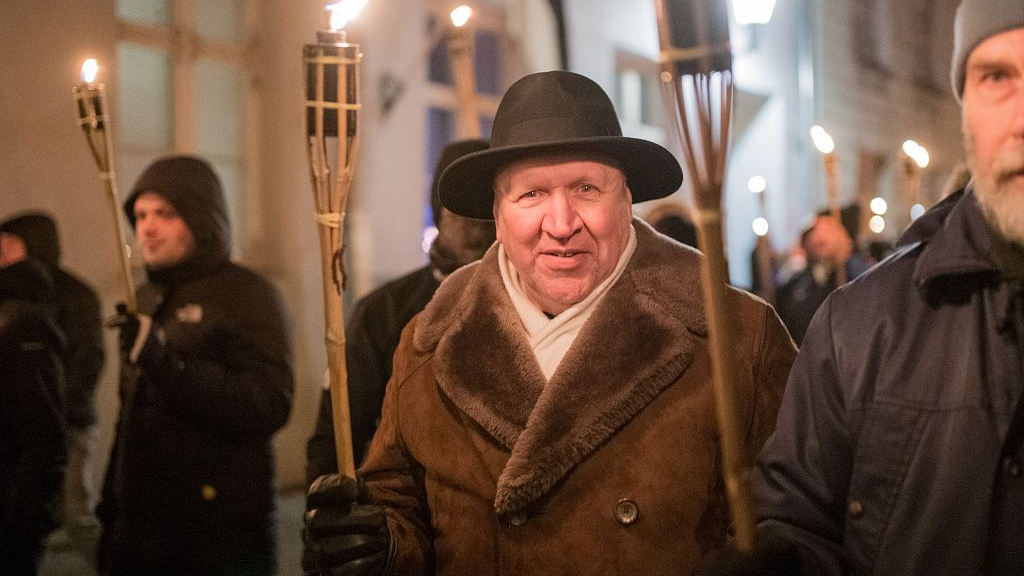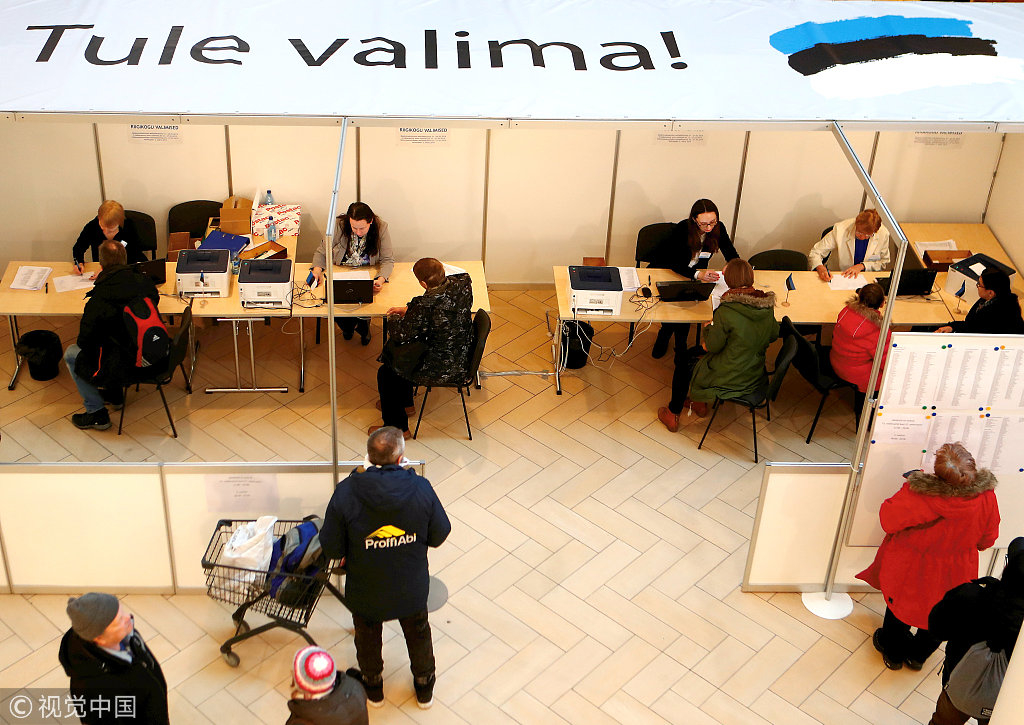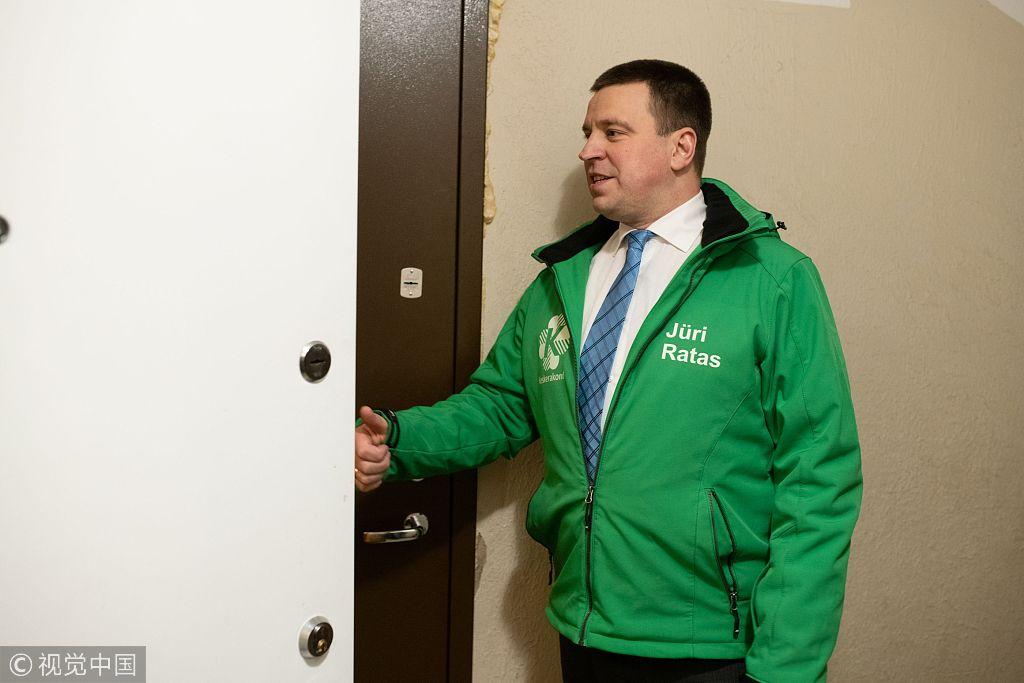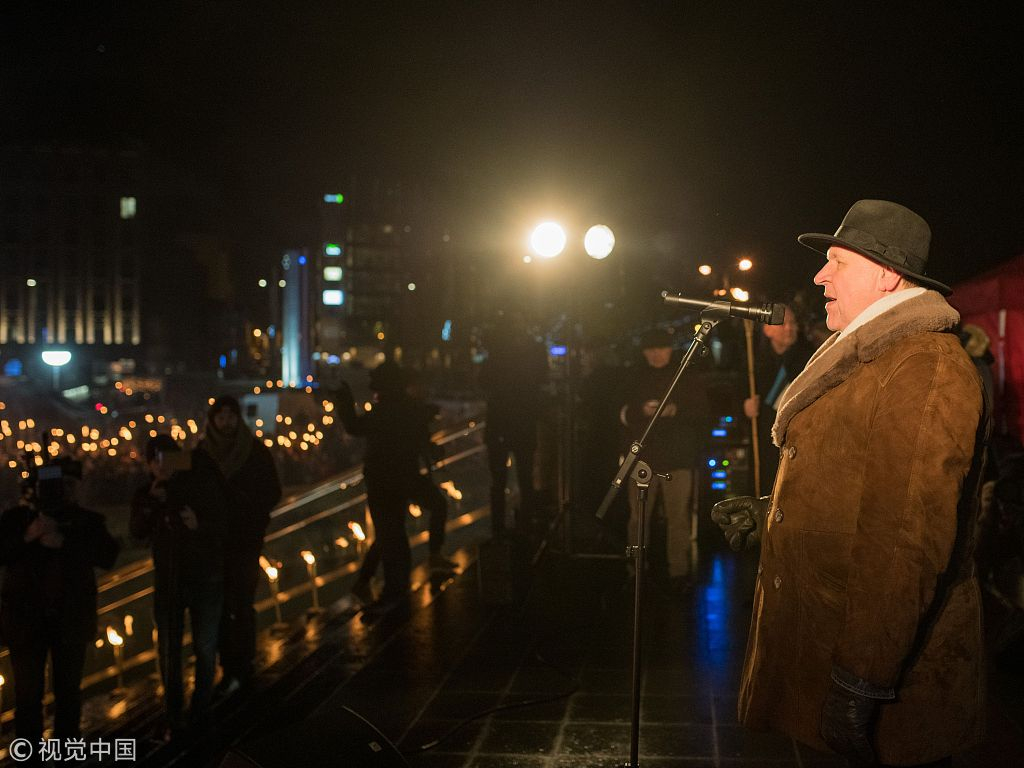
Europe
14:09, 03-Mar-2019
Estonia votes as far-right surge challenges mainstream
CGTN

Estonians vote Sunday in a general election with the center-left coalition dueling its traditional liberal rivals and a surging far-right party buoyed by a backlash from mostly rural voters in the Baltic eurozone state.
The campaign has focused on bread and butter issues like taxation and public spending, as well as tensions over Russian language education for Estonia's sizable Russian minority and the rural-urban divide.
Nearly 40 percent of the 880,690 eligible voters have used e-voting in advanced polling, with officials confident the online system can withstand any attempted meddling.

People cast their votes during advanced voting in the general election in Tallinn, February 24, 2019. / VCG Photo
People cast their votes during advanced voting in the general election in Tallinn, February 24, 2019. / VCG Photo
A poll collating e-voters and those intent on using paper ballots on Sunday suggests a tight race.
Prime Minister Juri Ratas's centrist Center party scored 24.5 percent support, narrowly trailing the liberal Reform party led by former MEP Kaja Kallas with 26.6 percent, according to pollster Kantar Emor.
Promising to slash income and excise taxes and pushing anti-immigration rhetoric, the far-right EKRE stands to more than double its support to 17.3 percent, but could struggle to find coalition partners.
While it won just seven seats in the 2015 election, the EKRE is set to capture a close third spot behind established parties. Staunchly eurosceptic, it called for an "Estxit" referendum on Estonia's EU membership, although the move would fail in the overwhelmingly pro-EU country.

Estonia's Prime Minister Juri Ratas of the centrist Center party knocks on the door of a flat as he campaigns, March 1, 2019. / VCG Photo
Estonia's Prime Minister Juri Ratas of the centrist Center party knocks on the door of a flat as he campaigns, March 1, 2019. / VCG Photo
The party's deep suspicion towards Moscow means it strongly supports NATO membership and the multinational battalion the alliance installed in Estonia in 2017 as a tripwire against possible Russian adventurism.
Tonis Saarts, a Tallinn University political scientist, draws comparisons to the rise of far-right parties across Europe that oppose immigration and multiculturalism while offering generous social spending.
He describes the EKRE's position on liberal democracy, including civic and human rights, rule of law and the separation of powers as "very ambiguous."

Mart Helme, chairman of the of the far-right Estonian EKRE Party, participates in the demonstration of the 101st anniversary of the Republic of Estonia, Tallinn, February 24, 2019. / VCG Photo
Mart Helme, chairman of the of the far-right Estonian EKRE Party, participates in the demonstration of the 101st anniversary of the Republic of Estonia, Tallinn, February 24, 2019. / VCG Photo
The party's surging popularity is largely rooted in the misgivings of rural Estonians who feel left behind after years of austerity under Center and Reform.
"These people see few economic prospects and feel the mainstream parties don't care much about their problems," Saarts said.
Polling stations open from 0700 to 1800 GMT on Sunday. No exit polls will be issued, with initial official results due by midnight.
(Cover image: Mart Helme, far-right Estonian EKRE Party leader, February 24, 2019. / VCG Photo)
Source(s): AFP

SITEMAP
Copyright © 2018 CGTN. Beijing ICP prepared NO.16065310-3
Copyright © 2018 CGTN. Beijing ICP prepared NO.16065310-3